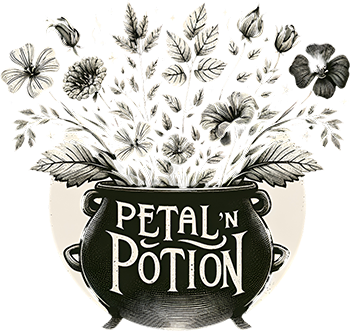R e d C l o v e r
Red clover (Trifolium pratense) is a perennial herb native to Europe, Western Asia, and Northwest Africa.
Known for its distinctive pinkish-red flowers, red clover has been used traditionally for various medicinal purposes,
including women’s health, skin conditions, and respiratory issues.
Benefits
- Menopausal Symptom Relief: Helps alleviate symptoms of menopause, such as hot flashes and night sweats.
- Bone Health: May support bone density and reduce the risk of osteoporosis.
- Cardiovascular Health: Supports heart health by improving blood circulation and lowering cholesterol levels.
- Skin Health: Treats skin conditions like eczema, psoriasis, and rashes.
- Respiratory Health: Aids in relieving conditions such as asthma, bronchitis, and coughs.
- Anti-Inflammatory: Reduces inflammation, which can help with various inflammatory conditions.
- Antioxidant Properties: Provides antioxidants that protect cells from oxidative stress and damage.
Active Compounds
- Isoflavones: Plant-based compounds with estrogen-like effects that help alleviate menopausal symptoms and support bone health.
- Phytoestrogens: Mimic the effects of estrogen in the body, providing benefits for women’s health.
- Flavonoids: Offer antioxidant and anti-inflammatory benefits.
- Coumarins: Support cardiovascular health by improving blood flow and reducing blood clot formation.
- Saponins: Contribute to immune support and have antimicrobial properties.
Who Should Avoid This
- Individuals with Hormone-Sensitive Conditions: Such as breast cancer, uterine cancer, ovarian cancer, endometriosis, or uterine fibroids should avoid it.
- People with Bleeding Disorders: Should use caution, as red clover may increase the risk of bleeding.
- Pregnant and Nursing Women: Due to potential hormonal effects, it is advisable to consult a healthcare provider before use.
- Individuals on Medication: Particularly those taking hormone replacement therapies, contraceptives, or anticoagulant medications should consult a healthcare provider to avoid interactions.
Warnings
While red clover offers numerous health benefits, some precautions and potential side effects should be considered:
- Hormonal Effects: Due to its phytoestrogen content, it may affect hormone levels and should be used with caution by individuals with hormone-sensitive conditions.
- Blood Thinning: May have blood-thinning effects and should not be used with anticoagulant medications.
- Allergic Reactions: Can cause allergic reactions in some individuals.
- Pregnancy and Breastfeeding: Consult a healthcare provider before use, as safety data is limited.
- Interactions with Medications: May interact with certain medications, including hormone replacement therapies, contraceptives, and anticoagulants.
Usage Guidelines
Red clover can be used both short-term and long-term, depending on the condition being treated. For acute issues such as menopausal symptoms or skin conditions, it is typically used until symptoms improve. For ongoing benefits such as bone health or cardiovascular support, longer-term use may be appropriate but always under the guidance of a healthcare professional. Always consult with a healthcare provider to determine the correct dosage and duration for your specific needs.
